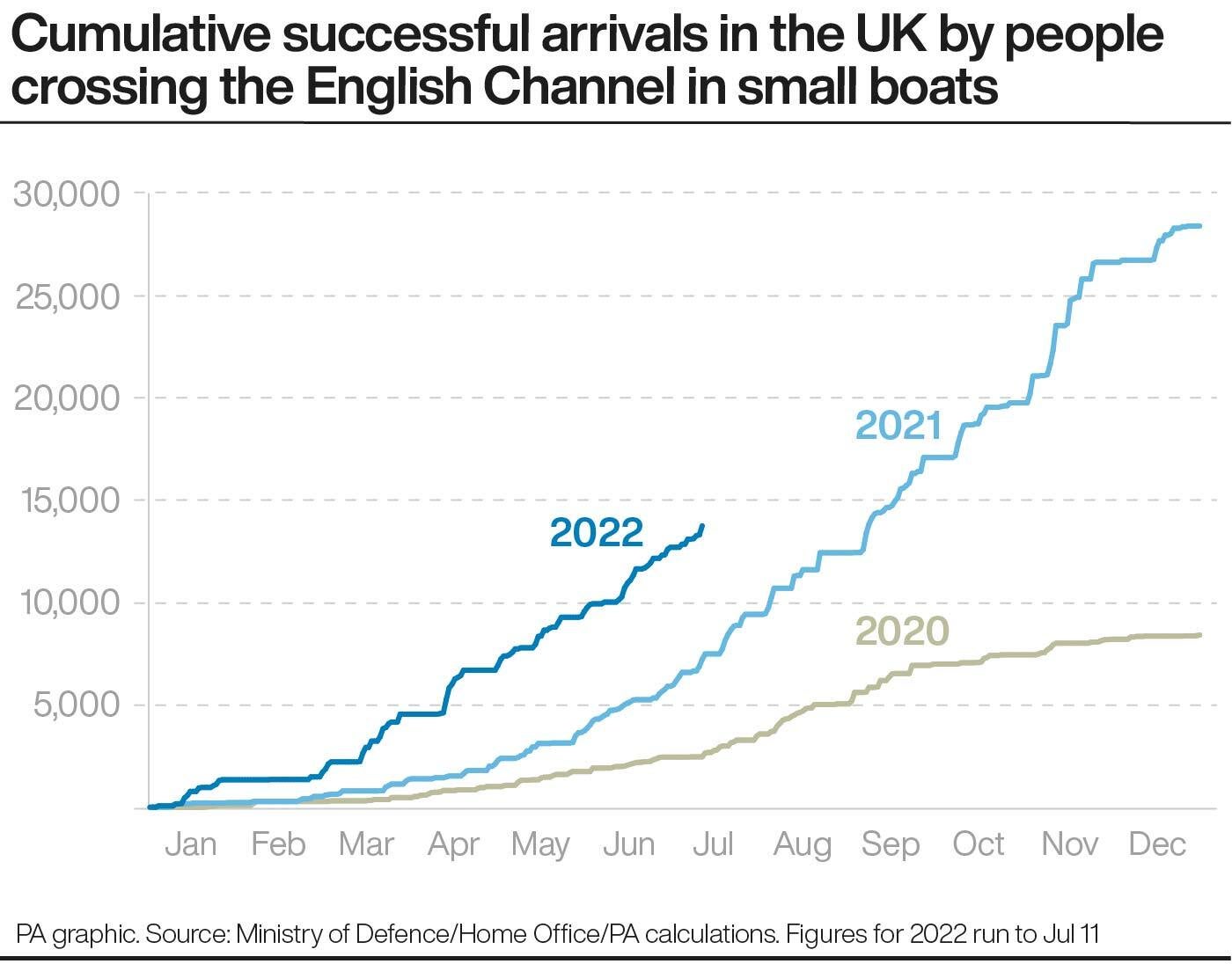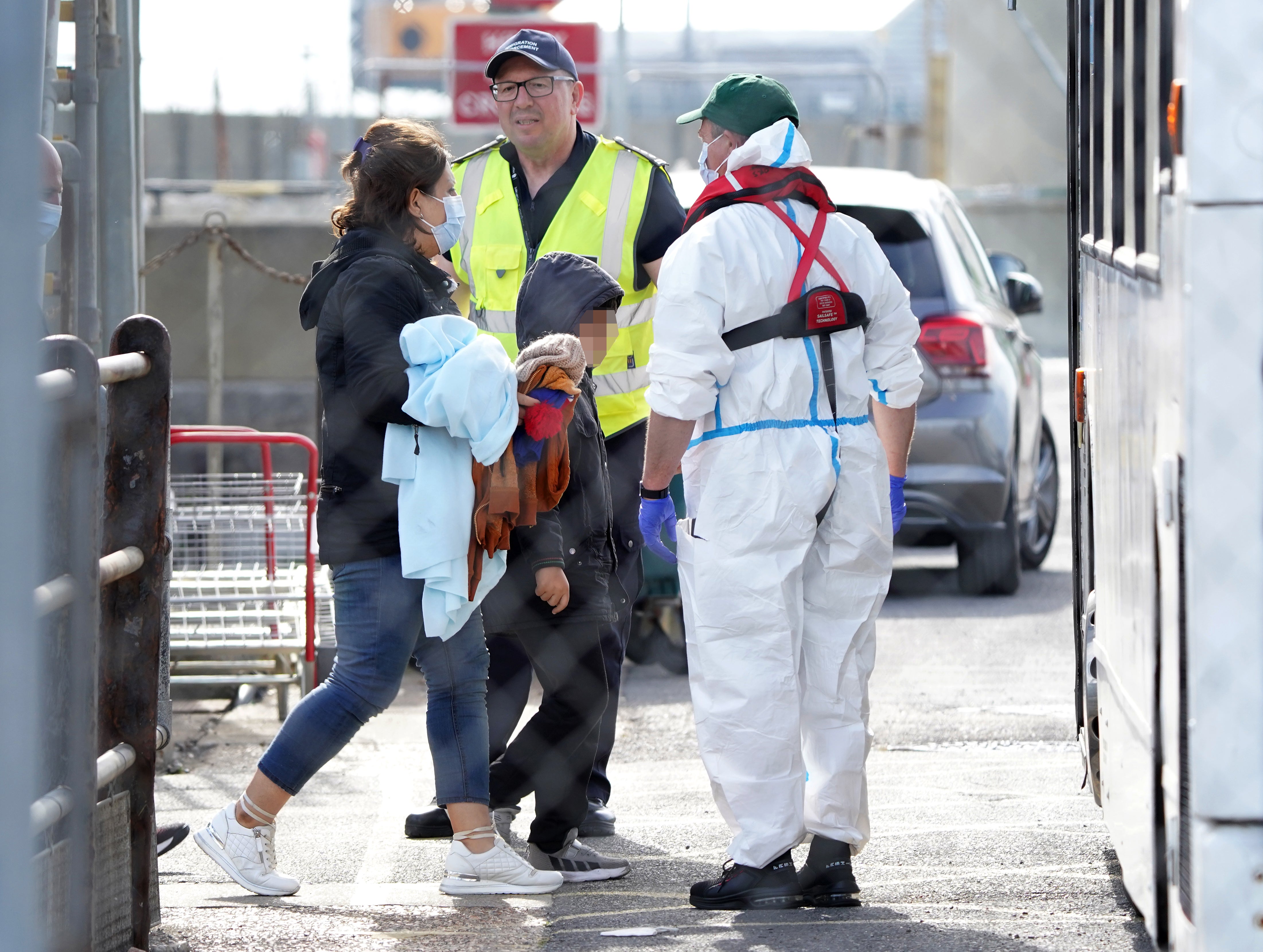
More than 400 migrants arrived in the UK on Monday after crossing the Channel.
The Ministry of Defence (MoD) said 442 people made the journey in 15 boats, suggesting an average of around 29 per boat.
Among them were several young children, including one seen clutching a cuddly toy.

It is the highest daily total since 444 were recorded on June 14, and is the fifth time this year that the figure has topped 400.
April 13 remains the highest figure so far in 2022, with 651.
More children were among people seen arriving in Dover on Tuesday as crossings to the Kent coast continued.
Some 13,749 migrants have made the crossing so far this year after navigating busy shipping lanes from France in small boats such as dinghies, provisional Government figures show.

It comes amid reports the Government plan to send Channel migrants to Rwanda has been put on hold until after the Conservative Party has elected a new prime minister.
The Times quoted officials as saying that a flight would generate too much controversy during a leadership contest, which is anticipated to conclude in September. The Telegraph reported suggestions the first flight may not take off until October at the earliest.
Last week Downing Street said the policy would still go ahead despite Boris Johnson’s resignation and suggested attempts could be made to get the first deportation flight off the ground again before a judicial review of the plan was due to be heard on July 19.
But since then, charities including Care4Calais and Detention Action, which are bringing the case, said the hearing has been adjourned until September.
The flight was initially due to take off on June 14 but was grounded after a series of legal challenges.
Our view, having been involved with the trials and having some expertise around those waters, was that it would be a breach of the saving life at sea convention to consciously seek to collide with another vessel in an international shipping lane— James Heappey, armed forces minister
On Tuesday, MPs heard the Government abandoned earlier proposals to use controversial pushback tactics to turn away migrants in the Channel after trials.
Armed forces minister James Heappey told the Defence Committee that the (MoD) initially recommended against the tactic, which was dropped following the conclusions of Navy experts after trials by the Royal Marines.
He said: “We were asked to explore how those tactics could be used in the Dover straits, and our analysis after a series of trials in Weymouth with various techniques and an analysis of the water and the type of threat that was being faced was that it was inappropriate, and the argument was won.
“Government decided not to do that because the evidence provided by professional mariners within the Royal Navy was such to compellingly make the case for not doing it.”
He added: “So our view, having been involved with the trials and having some expertise around those waters, was that it would be a breach of the saving life at sea convention to consciously seek to collide with another vessel in an international shipping lane.”







